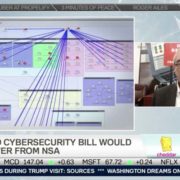Cybersecurity Faces 1.8 Million Worker Shortfall By 2022
Dark Reading | June 7, 2017
Over the next five years, the number of unfilled cybersecurity jobs will rise to a whopping 1.8 million, a 20% increase from 2015 estimates, according to a new (ISC)2 survey released today.
Driving this widening shortage is not only the often discussed lack of qualified workers but also a greater need to bring in more warm bodies to tackle the rapidly evolving ways that cybercriminals and attackers are launching their nefarious activities, according to the report. It’s getting easier for low-tech criminals to get into hacking, thanks to malware-as-a-service operations and crimeware kits.











